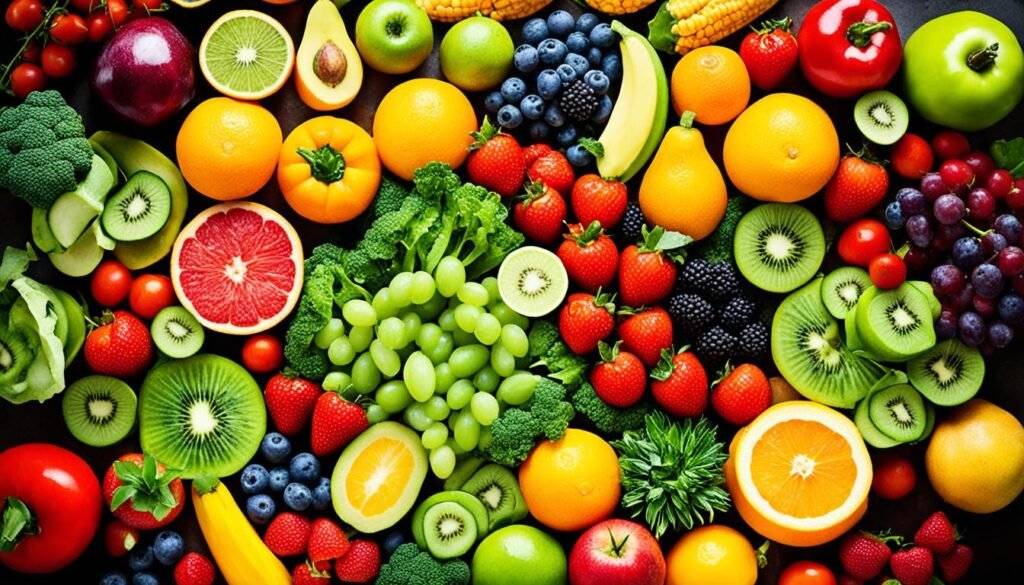Did you know that nearly 40% of adults in the United States struggle with obesity?
Weight loss is a challenge that many individuals face, but it is also a journey filled with immense rewards. Striving for a healthier lifestyle not only improves physical well-being but also boosts self-confidence and overall happiness.
However, the path to weight loss success can be daunting, with obstacles and setbacks along the way. That’s why having the right support, motivation, and accountability is crucial to stay on track and achieve your goals.
In this article, we will explore the various challenges faced during a weight loss journey and how to overcome them. We will also delve into the rewards that await those who commit to making lasting lifestyle changes. So let’s dive in and discover the insights that can transform your weight loss journey into a truly remarkable experience.
Key Takeaways:
- Embarking on a weight loss journey can be both challenging and rewarding.
- Around 40% of adults in the United States struggle with obesity.
- The right support, motivation, and accountability are crucial for weight loss success.
- By making lasting lifestyle changes, you can improve your overall well-being.
- Stay tuned as we explore the challenges and rewards of a weight loss journey in detail.
Essential Health Goals for Weight Loss
To achieve successful weight loss, it is important to set specific health goals that encompass various aspects of your life. These goals will guide you on your weight loss journey and help you make sustainable lifestyle changes. The key health goals for weight loss include:
Balanced Nutrition
Achieving balanced nutrition is crucial for weight loss. It involves consuming a variety of nutrient-rich foods while avoiding processed foods and excessive calorie intake. Incorporate the following into your diet:
- Fruits and vegetables
- Whole grains
- Lean proteins
- Healthy fats
By focusing on a balanced diet, you provide your body with the essential nutrients it needs while reducing unnecessary calorie intake.
Regular Exercise
Regular exercise plays a significant role in weight loss. It not only helps burn calories but also builds muscle mass, which can increase your metabolic rate. Include a combination of cardiovascular exercises, such as brisk walking or cycling, and strength training exercises, like weightlifting, in your fitness routine.
Mindful Eating
Mindful eating involves paying attention to your body’s hunger and fullness cues and avoiding emotional eating triggers. By practicing mindful eating, you can develop a healthier relationship with food and make more conscious choices. Take the time to enjoy your meals, chew slowly, and savor each bite.
Lifestyle Changes
Adopting lifestyle changes is crucial for long-term weight loss success. Make sleep a priority and aim for sufficient rest each night. Find effective ways to manage stress, such as exercise or meditation. These lifestyle changes contribute to overall well-being and support your weight loss journey.
By setting these essential health goals and making them a part of your daily routine, you can achieve sustainable weight loss and improve your overall health and well-being.
Effective Weight Loss Products
When it comes to achieving your weight loss goals, having the right tools and products can make all the difference. In this section, we will explore a variety of effective weight loss products that can help you on your journey to a healthier and fitter you.
Smart Fitness Apps
One of the key aspects of successful weight loss is regular exercise. Smart fitness apps, such as MyFitnessPal and Nike Training Club, are invaluable resources that provide personalized workout plans and real-time tracking. With these apps, you can track your progress, set goals, and access a wide range of workouts to keep you motivated and engaged.
Nutrient-Dense Meal Replacement Shakes
Meal replacement shakes are a convenient and calorie-controlled option for those looking to shed pounds. These shakes, like Shakeology and Garden of Life, are packed with essential nutrients and can be used as a substitute for a meal. They provide a balanced combination of proteins, carbohydrates, and fats, while keeping the calorie count in check.
Wearable Fitness Tech
Stay at the forefront of your fitness journey with wearable fitness tech devices like Fitbit and Apple Watch. These devices monitor your activity levels, heart rate, and calories burned throughout the day, providing valuable insights into your overall fitness and helping you stay accountable to your weight loss goals.
Superfoods and Supplements
Elevate your weight loss efforts with the power of superfoods and supplements. Ingredients like green tea extract and Garcinia Cambogia have been shown to enhance metabolism and support fat loss. Adding these supplements, along with a well-balanced diet, can give your weight loss journey an extra boost.
Mindful Eating Tools
Mindful eating is an essential practice for sustainable weight loss. Tools such as portion plates and food scales can help you control your food intake and develop healthy eating habits. By being mindful of portion sizes and eating slowly, you can better tune into your body’s hunger and fullness cues, leading to more conscious food choices.
High-Intensity Interval Training (HIIT) Programs
Get your heart rate up and burn calories with high-intensity interval training (HIIT) programs. Programs like Beachbody’s Insanity and Kayla Itsines’ Bikini Body Guide are designed to maximize calorie burn in a short period by combining intense bursts of exercise with short recovery periods. Incorporating HIIT into your workout routine can help you torch fat and improve your overall fitness.
Now that we’ve explored some of the most effective weight loss products, you have a range of tools at your disposal to enhance your weight loss journey. Whether you choose to integrate smart fitness apps, nutrient-dense meal replacement shakes, wearable fitness tech, superfoods and supplements, mindful eating tools, or high-intensity interval training programs, incorporating these products into your routine can support your efforts and help you reach your weight loss goals.
The Role of Balanced Nutrition

When it comes to weight loss, balanced nutrition plays a vital role in achieving your goals. It serves as the foundation for a healthy lifestyle and helps you maintain a stable weight in the long run. Here are some key aspects of balanced nutrition that can support your weight loss journey:
Consulting a Healthcare Professional
To ensure you meet your weight loss goals, it’s essential to consult a healthcare professional. They can provide personalized advice based on your specific nutritional needs. By understanding your body’s requirements, you can make informed decisions about your diet and optimize your weight loss efforts.
Incorporating a Variety of Foods
Achieving balanced nutrition involves incorporating a wide range of foods into your diet. This variety ensures you receive the necessary nutrients for optimal health while avoiding nutrient deficiencies. Including fruits, vegetables, whole grains, lean proteins, and healthy fats in your meals can help you achieve a balanced diet.
Practicing Portion Control
Portion control is another crucial aspect of balanced nutrition for weight loss. By being mindful of the amount of food you consume, you can prevent overeating and maintain a calorie deficit that leads to weight loss. Using smaller plates, measuring portions, and practicing mindful eating can help you control your portion sizes effectively.
Meal Planning and Tracking Food Intake
Meal planning and tracking your food intake are valuable strategies in maintaining balanced nutrition. Planning your meals in advance allows you to make healthier choices and avoid impulsive food decisions. Additionally, tracking your food intake helps you stay accountable and mindful of your calorie consumption, which can contribute to successful weight loss.
To illustrate the importance of balanced nutrition in weight loss, consider the following table:
| Nutrient | Function | Food Sources |
|---|---|---|
| Protein | Aids in muscle repair and growth | Chicken, fish, tofu, legumes |
| Fiber | Promotes satiety and aids in digestion | Whole grains, fruits, vegetables, nuts |
| Healthy Fats | Provides energy and supports nutrient absorption | Avocado, nuts, olive oil, fatty fish |
| Vitamins and Minerals | Essential for overall health and proper bodily functions | Leafy greens, citrus fruits, dairy products |
By incorporating these key nutrients into your daily meals and practicing portion control, you can achieve balanced nutrition and support your weight loss goals.
The Importance of Regular Exercise
Regular exercise plays a crucial role in weight loss and overall well-being. By incorporating a combination of cardiovascular exercises and strength training, individuals can effectively burn calories and build muscle mass.
Cardiovascular exercises, such as brisk walking, cycling, and swimming, are great for improving heart health and increasing calorie expenditure. These activities get the heart rate up and improve circulation, contributing to weight loss.
Strength training exercises, like weightlifting or resistance training, help increase muscle mass. Building lean muscle not only boosts metabolism but also enhances overall body composition, leading to long-term weight loss.
Engaging in enjoyable activities is essential for maintaining consistency and motivation. Participating in group fitness classes, team sports, hiking, or dancing allows individuals to have fun while being physically active, making the weight loss journey more enjoyable and sustainable.
It’s important to gradually progress in terms of exercise intensity and duration. Starting with a comfortable level and gradually increasing the challenge helps prevent injury and allows the body to adapt to the demands of exercise. Consistency is key for achieving weight loss goals, so creating a regular exercise routine that suits one’s lifestyle and preferences is essential.
The Benefits of Regular Exercise for Weight Loss:
- Increased calorie burning
- Improved cardiovascular health
- Enhanced muscle strength and tone
- Enhanced metabolic rate
- Better body composition
- Increase in energy levels
- Reduced risk of chronic diseases
“Regular exercise is not only beneficial for weight loss but also for improving overall physical and mental well-being.”
The Power of Mindful Eating

Mindful eating is a powerful tool for weight loss and overall well-being. It involves tuning in to your body’s hunger and fullness cues, slowing down while eating, and savoring each bite. By practicing mindful eating, you can develop healthier eating habits and make more conscious food choices.
One of the key principles of mindful eating is paying attention to your body’s hunger and fullness signals. This means eating when you’re truly hungry and stopping when you begin to feel satisfied. By listening to your body’s cues, you can avoid overeating and promote weight loss.
Slowing down while eating is another important aspect of mindful eating. By taking the time to chew your food thoroughly and fully savor each bite, you can enhance your enjoyment of the meal and promote better digestion. This also gives your body the opportunity to register feelings of fullness, preventing you from overeating.
Emotional eating can often derail weight loss efforts. It occurs when you use food to cope with emotions, such as stress, sadness, or boredom. Mindful eating can help you identify and avoid emotional eating triggers. Instead of turning to food for comfort, you can find alternative ways to manage stress and emotions, such as engaging in hobbies, practicing relaxation techniques, or seeking support from loved ones.
Mindful eating is also closely connected to stress management. Stress can lead to overeating and weight gain. By being mindful of your eating habits, you can become more aware of how stress affects your food choices and find healthier ways to manage stress, such as exercise, meditation, or journaling.
By incorporating mindful eating into your weight loss journey, you can develop a healthier relationship with food, make more informed food choices, and better manage your hunger and fullness cues. Ultimately, mindful eating can help you achieve sustainable weight loss and improve your overall well-being.
The Benefits of Mindful Eating
- Enhanced awareness of hunger and fullness cues
- Prevention of emotional eating
- Improved digestion
- Enhanced enjoyment of meals
- Better management of stress and emotions
Mindful eating is a powerful tool for weight loss and overall well-being. It involves tuning in to your body’s hunger and fullness cues, slowing down while eating, and savoring each bite.
Sustainable Lifestyle Changes
Sustainable weight loss requires making long-term lifestyle changes. By implementing healthy habits, prioritizing adequate sleep, and managing stress effectively, individuals can increase their chances of achieving and maintaining their weight loss goals.
1. Identifying and Replacing Unhealthy Habits
One of the first steps towards sustainable weight loss is identifying and replacing habits that hinder progress. This may include excessive snacking, sedentary behavior, or emotional eating. By recognizing these habits, individuals can take proactive measures to replace them with healthier alternatives.
2. Prioritizing Sufficient Sleep
Sleep plays a crucial role in weight management. Lack of sleep can disrupt hormonal balances, leading to increased cravings and decreased motivation for physical activity. Establishing a consistent sleep schedule and aiming for 7-9 hours of quality sleep can support weight loss efforts.
3. Incorporating Stress Management Techniques
Stress can impede weight loss progress due to its impact on hormone regulation, appetite, and emotional eating. Engaging in stress management techniques such as exercise, meditation, or deep breathing exercises can help alleviate stress and prevent it from sabotaging weight loss goals.
4. Creating a Supportive Environment
Surrounding oneself with a supportive network can significantly contribute to long-term weight loss success. Whether it’s joining a fitness group, finding an accountability partner, or seeking professional guidance, having a support system provides motivation, encouragement, and accountability.
5. Building Healthy Routines
Establishing consistent routines can help reinforce healthy habits and make sustainable lifestyle changes more manageable. This includes setting specific meal times, scheduling regular exercise sessions, and finding enjoyable activities that promote an active lifestyle.
6. Celebrating Milestones
Recognizing and celebrating small milestones along the weight loss journey can boost motivation and provide a sense of accomplishment. Whether it’s fitting into a smaller size clothing or achieving a fitness goal, acknowledging progress along the way can inspire continued success.
7. Seeking Professional Guidance
For individuals who may need additional support or personalized advice, consulting with a healthcare professional, nutritionist, or registered dietitian can provide valuable insights and guidance on making sustainable lifestyle changes specific to their needs.
8. Tracking Progress
Regularly tracking food intake, exercise routines, and weight loss progress can help individuals stay accountable and stay motivated. Utilizing smartphone apps or journaling can provide a visual representation of progress and highlight areas for improvement.
| Lifestyle Changes | Benefits |
|---|---|
| Identifying and Replacing Unhealthy Habits | Creates a foundation for healthier choices and avoids progress setbacks. |
| Prioritizing Sufficient Sleep | Regulates hormones, reduces cravings, and boosts energy levels. |
| Incorporating Stress Management Techniques | Prevents emotional eating and maintains hormonal balance. |
| Creating a Supportive Environment | Provides motivation, encouragement, and accountability. |
| Building Healthy Routines | Makes healthy habits more consistent and promotes an active lifestyle. |
| Celebrating Milestones | Keeps motivation high and acknowledges progress along the journey. |
| Seeking Professional Guidance | Provides personalized advice and guidance tailored to individual needs. |
| Tracking Progress | Keeps individuals accountable and visualizes progress for continued motivation. |
Conclusion
Embarking on a weight loss journey requires a comprehensive approach that focuses on essential health goals. By incorporating balanced nutrition, regular exercise, mindful eating, and lifestyle changes into our daily routines, we can achieve sustainable weight loss and improve our overall well-being.
The path to success on our weight loss journey may be challenging at times, but with patience and perseverance, we can overcome obstacles and reach our goals. It’s important to celebrate milestones along the way, acknowledging our progress and staying motivated to push forward.
Remember, a comprehensive approach to weight loss is not just about shedding pounds. It’s about embracing a healthier lifestyle that supports our physical and mental well-being. By prioritizing our health and making sustainable changes, we can transform our lives for the better.







